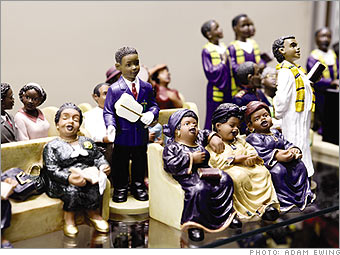In the early '70s the neighborhood was still comfortably working-class. Then residents started moving to the suburbs. Property values fell, but that didn't hurt Edloe's Pharmacy, which developed a booming delivery service to reach clients who had moved to more genteel neighborhoods. Now those folks are aging, and Edloe's is surrounded by a new type of consumer. Around these few blocks of 25th Street are the unmistakable signs of encroaching gentrification - new housing construction, trendy boutiques, a coffee shop. Edloe's potential customer is now young, hip, and likely to shop at CVS or Rite Aid.
Then Uncle Sam compounded Edloe's problems. On Jan. 1, 2006, Congress changed how the government reimburses pharmacies for Medicare prescriptions under a law called Medicare Part D. Not only were payment amounts lowered, but payments that pharmacies used to receive within a week now took months. Independent pharmacies in particular struggled with cash-flow problems. Because of those changes, many of them have gone out of business. Industry analysts expect more to follow, especially those highly dependent on Medicare income. With an aging customer base, Edloe estimates that 90 percent of his prescription revenue comes from Medicare Part D.
Customers like the shelves full of African-American figurines, which Edloe says have drawn collectors from Baltimore, D.C., and Raleigh. "This is a niche market," Reagan says. "You need to market this outside your community and on the Web, especially at gift-giving times such as Mother's Day, Christmas and Valentine's Day."
Talmage would like to see more community-based activity - seasonal craft fairs in the office-building lobby, for example, or local-school artwork on the walls, "anything that draws people in."
| |

